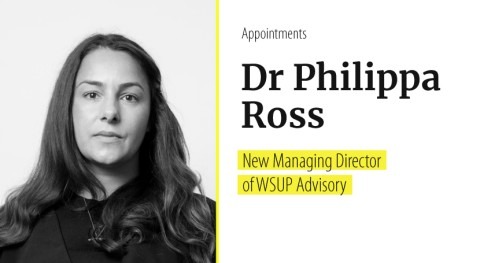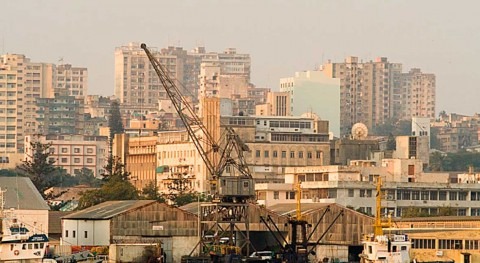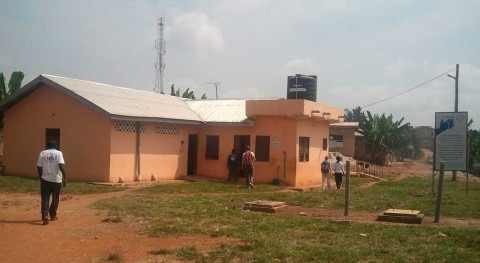On occasion of World Toilet Day, celebrated every 19th of November, to draw attention to the global sanitation crisis and help achieve Sustainable Development Goal (SDG) 6, we caught up with Sibongile Ndaba, Business Development Lead at Water & Sanitation For The Urban Poor in Zambia.
Water & Sanitation for the Urban Poor (WSUP) is a non-profit organization set up in 2005 that works side by side with utilities, municipalities and the private sector, supporting them to develop water and sanitation services, build infrastructure and attract funding that will help them reach low-come communities in numerous countries.
Question: Firstly, we would like to know briefly your career path and your current role in WSUP.
Answer: I hold an undergraduate degree in Development Studies and a Masters in Economics of Development. I have worked in commercial banking before transitioning to Water & Sanitation for the Urban Poor where I have been for three and a half years as a Business Development Lead in Zambia. My current role involves overseeing business components of all our WASH projects. At WSUP, we endeavour to offer market-based solutions to social problems. This is of critical importance to my role as I make a business case for WASH.
Q: What do you think are the main challenges in water and sanitation?
A: The main challenge is on the capacity to provide WASH services to a growing urban population. Most African and Asian cities have in recent decades experienced rapid urbanisation, making it difficult for mandated service providers to meet the needs of those who have migrated to cities and typically live in low-income communities. In Lusaka, Zambia’s capital, about 70% of its 1.7 million population live in low-income areas and rely on on-site sanitation facilities that are poorly constructed and tend to leach in the rainy season. This not only causes recurrent water borne diseases but also ground water contamination. Another critical challenge on the demand side borders on financing mechanisms for appropriate sanitation facilities i.e., getting low income communities to invest in appropriate sanitation that will prevent ground water contamination. Both finance and capacity are critical for the attainment of Sustainable Development Goal 6.
In Lusaka about 70% of its 1.7 million population live in low-income areas and rely on on-site sanitation facilities that are poorly constructed and tend to leach in the rainy season
Q: What type of activities does WSUP carry out related to water and sanitation?
A: WSUP responds to WASH challenges by working alongside mandated service providers to help reach low income communities with safe WASH services. We do so by demonstrating models and documenting lessons that inform decisions that can take WASH services to scale. This can be done through using highly resistant and durable pipes for water supply that helps utilities manage their non-revenue water for instance, or demonstrating a faecal sludge management model like we have done in Lusaka.
Q: What countries or regions does WSUP operate in?
A: WSUP currently works Zambia, Madagascar, Mozambique, Ghana, Bangladesh, Kenya and Uganda with the Secretariat based in the UK.
WSUP responds to WASH challenges by working alongside mandated service providers to help reach low income communities with safe WASH services
Q: Out of the countries WSUP operates in, which ones are considered most challenging in relation to water, sanitation and marginalized groups?
A: Every country faces different challenges in extending access to marginalized groups. In Zambia, the biggest challenge is finding appropriate WASH technologies for flood prone areas that cause perennial water borne diseases and ground water contamination. In Bangladesh, population density means greater resources have to be dedicated, whilst in Ghana residents struggle to install or build their own toilet so the challenge is often around affordability. In Kenya, the prevalence of informal pit-emptiers that leads to increased amounts of unsafely managed sludge, and in Madagascar the high poverty levels means more effort in coming up with models that can enable increased access for the poorest communities.
Q: With regard to the World Toilet Day, why do you think it is necessary to highlight the marginalized groups’ difficulty in accessing safe toilets?
A: Considering this year’s theme is leaving no one behind, it is imperative that the messages are inclusive. Women, adolescent girls, the elderly and marginalised groups are worse hit when it comes to poor sanitation facilities. Highlighting their challenges sets the agenda for more effort to be channelled for inclusion: for example, more appropriate sanitation technologies for the disabled.
Women, adolescent girls, the elderly and marginalised groups are worse hit when it comes to poor sanitation facilities
Q: How is WSUP helping young people set up urban water and sanitation businesses?
A: WSUP conducts a lot of interventions which involve creating sustainable businesses that also include young people, although we do not have any youth-targeted projects. The water kiosks that have been developed in Zambia for instance are typically managed by people in their 20s. Youths are also engaged for community engagement which is a critical component of all our projects. In one of our water improvement projects in Nakatindi, Livingstone, 30 young people were employed to do the excavations.
Q: Lastly, what more can be done to reach everyone with safe water and sanitation by 2030?
A: Capacity building in mandated service providers, improved sector coordination, creation of bankable projects and increased budgetary allocation to WASH are among the key drivers of change. To mark World Toilet Day we have released a report entitled Systems Reboot: sanitation sector change in Lusaka and Maputo, which explains that driving change emanates from addressing different components of a system, which can contribute significantly to changing the whole trajectory. For instance, getting institutional buy in from stakeholders through demonstrating business models designed to serve low income communities informed a citywide faecal sludge management service model, whilst at the same time, highlighting capacity gaps that needed to be filled for this model to be sustainable.








